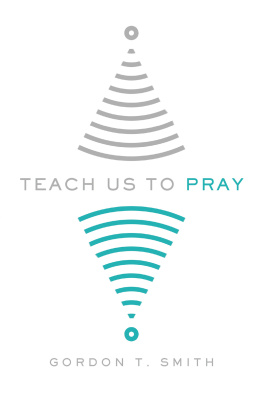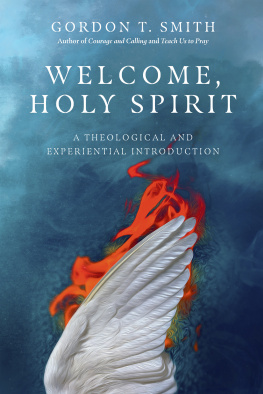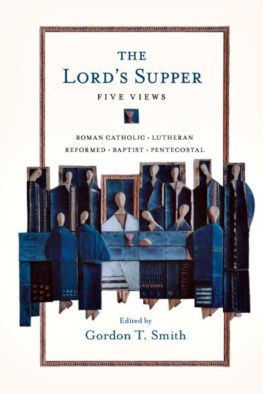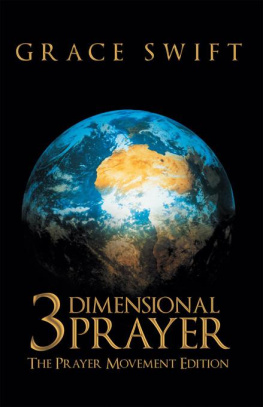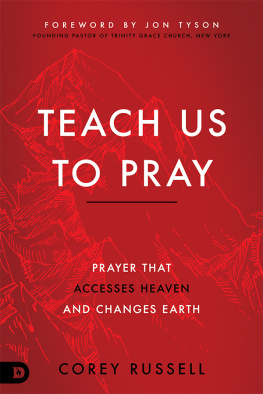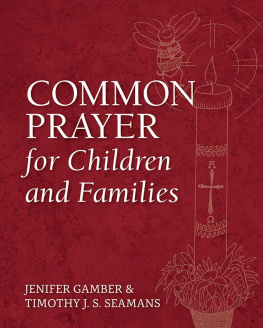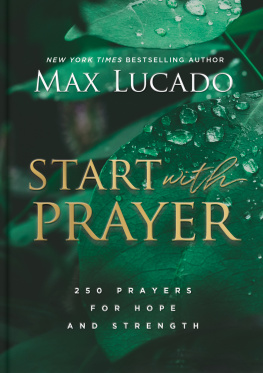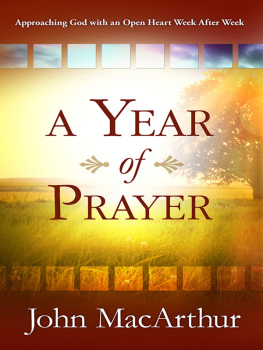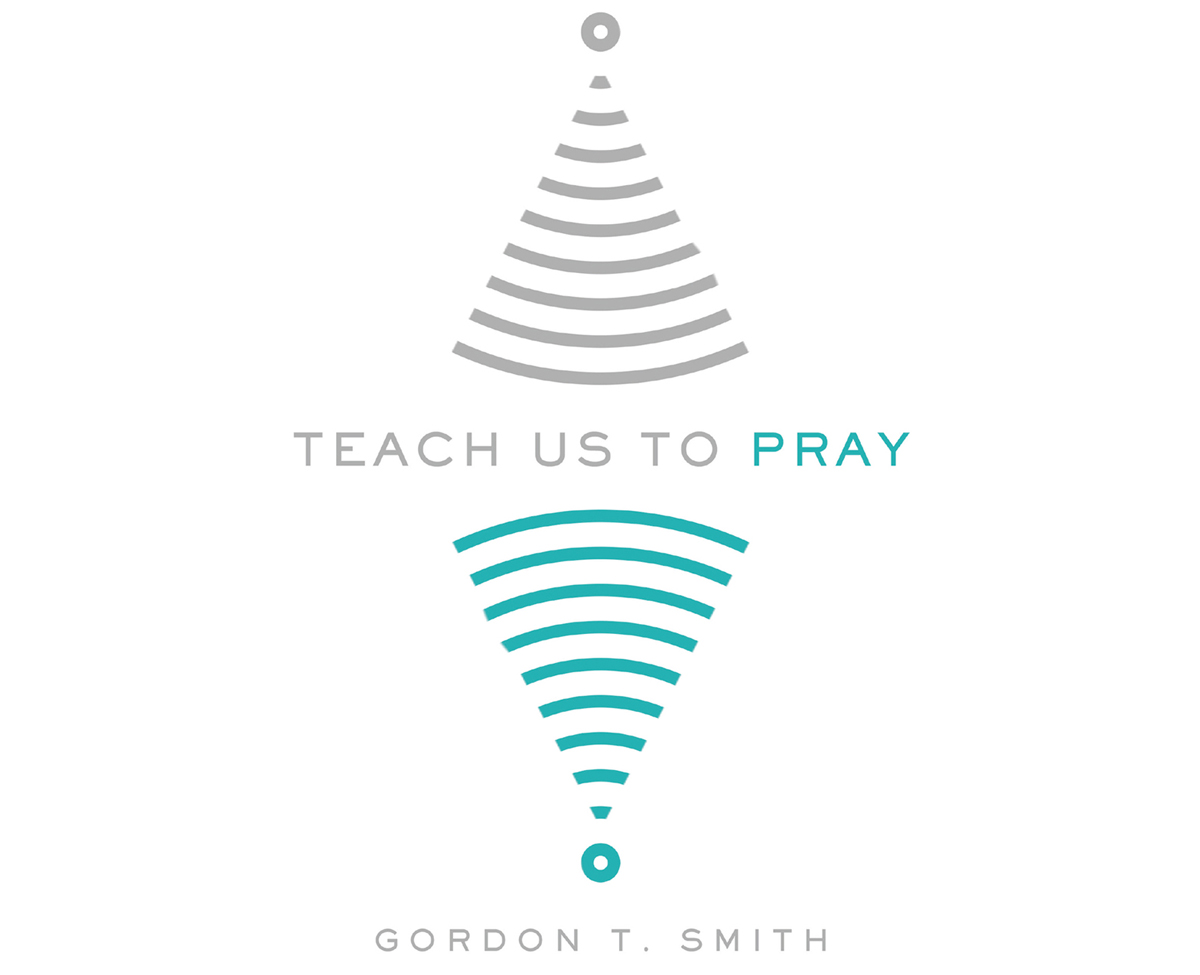Sommaire
Pagination de l'dition papier
Guide
InterVarsity Press
P.O. Box 1400, Downers Grove, IL 60515-1426
ivpress.com
2018 by Gordon T. Smith
All rights reserved. No part of this book may be reproduced in any form without written permission from InterVarsity Press.
InterVarsity Pressis the book-publishing division of InterVarsity Christian Fellowship/USA, a movement of students and faculty active on campus at hundreds of universities, colleges, and schools of nursing in the United States of America, and a member movement of the International Fellowship of Evangelical Students. For information about local and regional activities, visit intervarsity.org.
Scripture quotations, unless otherwise noted, are from the New Revised Standard Version of the Bible, copyright 1989 by the Division of Christian Education of the National Council of the Churches of Christ in the USA. Used by permission. All rights reserved.
While any stories in this book are true, some names and identifying information may have been changed to protect the privacy of individuals.
Cover design: David Fassett
Interior design: Daniel van Loon
ISBN 978-0-8308-8846-7 (digital)
ISBN 978-0-8308-4521-7 (print)
This digital document has been produced by Nord Compo.
to joella
PREFACE
Practicing Prayer
i t is a poignant encounter that the disciples have with Jesus, a tender moment, when they see Jesus returning from being in prayer and say to him, Lord, teach us to pray (Luke 11:1). I am inclined to quote their request with an intentional emphasis on the word us. Teach us to pray. They longed to enter into a practice that was clearly vital to the life and ministry of Jesus. They too wanted to pray.
This request is a reminder to us that one of the most basic capacities of the Christiana basic spiritual disciplineis the practice of prayer. The Scriptures assume that prayer is a vital dimension or element of the Christian lifefor the Christian and for the church. The Christian spiritual tradition assumes that the church is a praying community; to be a Christian is to be a pray-er. It can truly be said that we cannot live the Christian life unless we learn how to pray. We cannot be the church until we pray.
And thus it is important to give time and focus to the meaning and practice of prayer, given its central place in our lives and the life of the church. It is important to learn how to pray. It follows, then, that it is important to be part of a Christian community, a church, that teaches prayer. It is a basic spiritual practice. So it only makes sense that the essential work of Christian catechesisthe ministry of introducing new Christians to the faithincludes teaching on how to pray. As for older, more mature Christians, we need to come back to the basics, the fundamentals of prayer, in that we are always learning how to pray. The church only lives as it prays; Christians only grow in faith, hope, and love as they learn how to pray.
This book offers a reminder that as the church, as Christians in community, we long to learn together what it means to pray. But while I consider the church at prayer, the focus in what follows is on how each of us, individually and personally, can and needs to know how to prayeven as Jesus prayed. We learn to pray in community as part of the church, and we learn to pray alone in solitude. Our personal prayers lean into and draw on the experience of the church at prayer. But my focus will be on our personal and individual prayers as we ask what it means to learn how to pray.

PRAYER AND THE KINGDOM OF GOD
i n learning how to pray, it is, of course, helpful to go to the very prayer that Jesus gave his disciples when they asked, Teach us to pray. He taught them to say what we know as the Lords Prayer, or in some Christian communities, the Our Father. The prayer is a sequence of prayers: hallowed be thy name, forgive us our debts, and give us this day. Yet these prayers pivot on one prayer or petition in particular: thy kingdom come, and its twin, thy will be done in earth, as it is in heaven (Matthew 6:9-11 KJV). Essentially, then, Jesus taught his disciples to pray for the coming of the kingdomfor coming of the reign of God. When we pray thy kingdom come, we are expressing the longing of our hearts and minds that the will of God would happen, on earth as it is in heaven.
It would be a profound understatement to say that this matters. For indeed nothing matters more. Nothing. The idea of the kingdom of God permeates the whole of the witness of the Old Testament; we read again and again of the longing for the future manifestation of the reign of God. From this vantage point, the prayer is a longing, in the Jewish tradition, for the coming of the Messiah. Jesus himself spoke of how he would not drink of the fruit of the vine again until the kingdom of God comes (Luke 22:18). And this is the prayer of the church: for the coming of the kingdom, for Christ to return and bring about the restoration and healing of the entire created order. We yearn for the consummation of the reign of Christ: that Christthe Messiahwould be revealed, and that all creation would know the full manifestation of the healing and restorative grace of God.
Theologians therefore speak of this as an eschatological prayerlooking ahead to a day that is yet to come. That day is when the purposes of Godnow very present in heaven, where God dwellswill be fully consummated on earth, where we dwell. Our great longing and prayer, in other words, is not to go to heaven but for heaven to come down and transform the earth and all its inhabitants and thus reveal the glory and purposes of God (see Revelation 21).
And yet when Jesusthe very one who announced that the kingdom of God is at hand (Mark 1:14-15)offers this prayer, we have to also read it through another lens. Yes, the kingdom is future; we look forward to a day that is yet to come; we anticipate the consummation of the kingdom. But the kingdom of God is also very present. The disciples of Jesus are those who now live in him and under his authority. We have become and are becoming citizens of this kingdom, living now, in the present, in and under the reign of Christ. His disciples are those who seek his kingdom and even now, as a foretaste of what is yet to come, begin to allow the will of Godthy will be done in earth, as it is in heavento be effective and expressed in every sphere and dimension of human lifeindeed, of the whole cosmos. This begins in particular, of course, in our own lives. In our prayers, we learn obedience; very specifically, we learn the freedom that comes in and through obedience within the benevolent reign of Christ. In our prayers we enter into the grace of deferring to the will and authority of Christ.
This is our great longing: to enter into his kingdom. Jesus suggests that we should seek the kingdom, that this is the most important agenda in our lives. It is worth any price; it merits the full scope of our energies and desires. We are invited not only to pray the prayer but also, in praying, to enter into the kingdomto seek it and to live in this new dimension of reality. Saint Paul urges us to set our minds on things that are above (Colossians 3:2), which means precisely the same thingto live with our minds set on Christ, who is the ascended Lord and whose reign has come and is coming.

